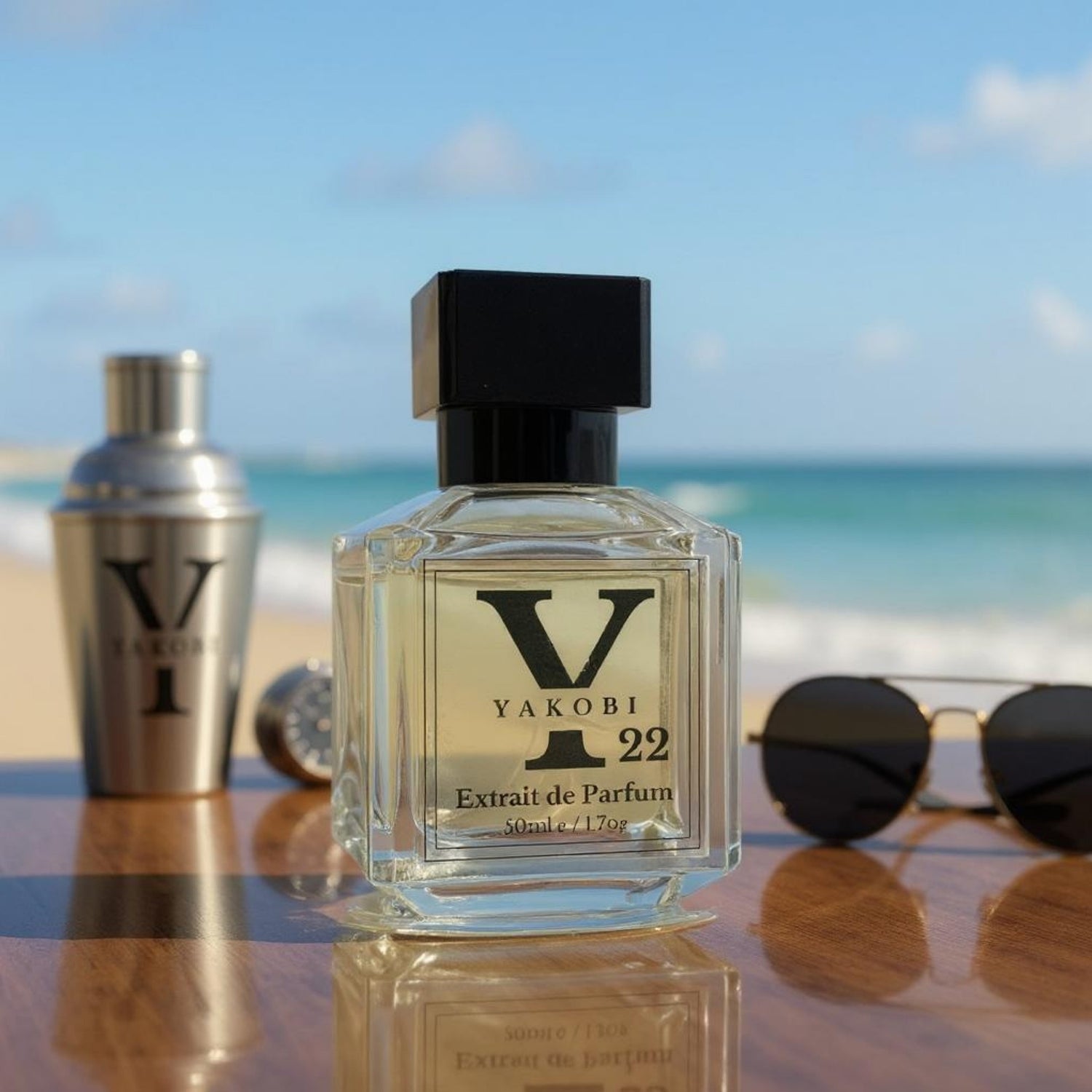Powerful Perfumes
Our Fragrance Evaluation
At Yakobi, we understand the questions and uncertainties that arise when choosing a new fragrance. That’s why we’ve created a thoughtful evaluation process to help guide your scent journey—with clarity, not confusion.

1. Scent Characteristics
This is the heart of fragrance—and the most subjective. Ask yourself:
Do I like this scent?
How does it make me feel?
There’s no right or wrong answer here. Fragrance is personal. What captivates one person may not appeal to another—and that’s perfectly okay.
2. Performance
In the fragrance world, “performance” refers to how long a scent lasts and how well it diffuses through the air.
A great-smelling perfume doesn't always guarantee long wear or strong projection—but our goal is to strike the perfect balance between quality and performance.
3. Power & Radiance (Projection & Sillage)
A beautiful scent should be noticeable.
Projection: How far the scent radiates from the skin.
Sillage: The trail a fragrance leaves behind.
These qualities diminish over time and depend on formulation and skin chemistry. Some people may also experience olfactory fatigue (or "nose blindness") to certain notes, like musk, affecting their perception of strength.
Fragrance types:
Sharp: Easy to detect (e.g., citrus)
Enveloping: Subtle yet rich (e.g., vanilla)
4. Longevity (Dry Down)
How long does it last on your skin?
Longevity is influenced by oil concentration. Here’s a guide:
Body Mist / After Shave: 1–3%
Eau de Cologne (EdC): 2–6%
Eau de Toilette (EdT): 5–15%
Eau de Parfum (EdP): 10–20%
Perfume Extract / Parfum: 15–40%
Yakobi Extrait de Parfum: 45%
(Unless modified per IFRA safety guidelines)
Higher oil concentrations mean longer-lasting scent. Our 45% formulation reflects our commitment to delivering exceptional staying power.

5. Olfactory Fatigue
Sometimes you stop noticing your fragrance—this is nose fatigue. It’s common and natural. Others can often still smell and enjoy your scent, even if you can’t.
6. Versatility
No single fragrance suits every moment, just like no outfit fits every occasion. Consider:
Season: Spring, Summer, Autumn, Winter
Time: Morning vs. Evening
Style: Everyday vs. Special Occasion
Type: Masculine, Feminine, or Unisex
Tone: Subtle or Bold, Polarising or Safe
We encourage building a fragrance wardrobe suited to different moods and moments.
7. Price & Perceived Value
More expensive doesn’t always mean better. Some affordable ingredients (like citrus) can smell just as luxurious and refreshing as high-end blends.
In the end, value is personal. A $300 perfume that you dislike is expensive. But one you love at any price is a treasure.
Yakobi offers high-quality, inspired fragrances at a fraction of the designer cost—making luxury more accessible.
8. Compliments
Fragrance is a form of self-expression—but compliments can be the cherry on top. They may vary day-to-day, but the most important approval is your own. If you feel great wearing it, that’s what truly matters.
Final Thoughts
Fragrance is emotional, instinctive, and deeply personal. This guide isn’t a rulebook—it’s a helpful companion on your scent discovery journey.
If you love a fragrance, wear it with confidence. Forget the rules and follow your nose. After all, perfume is meant to be enjoyed.
— The Yakobi Fragrance Team
